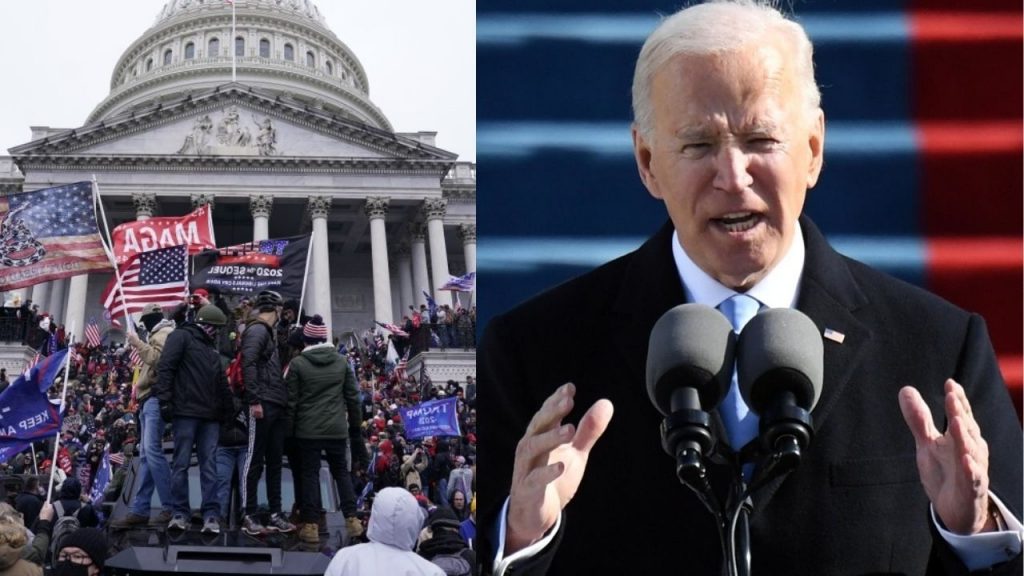
The events that occurred in our nation’s capital on Jan. 6, during which an angry and violent mob of white nationalists and Trump supporters assaulted the Capitol inspired by the inflammatory rhetoric of a sitting president fomenting seeds of insurrection, appeared in stark contrast to the inauguration ceremony this past Wednesday — exactly two weeks later — as incoming President Joe Biden reached out with comforting words to heal a nation torn asunder by four solid years of vitriol and demagoguery.
To a large extent the two events stood as bookends reflecting the worst and best of what America was envisioned to be: a practical and tightly woven real-world political structure with an embedded balance of power to protect citizens against tyranny along with an articulated philosophical ideology on which it was built, bringing to America the Enlightenment principles of Hobbes, Locke, Hume and Rousseau.
Prior to our Founding Fathers declaring independence from Britain, much philosophy within the realm of politics referred to the “Divine Right of Kings,” — the view that kings were granted this right by blood.
Enlightenment thinker and philosopher John Locke adamantly argued against this view in “The First and Second Treatise of Government,” seeking to separate from the narrative of “divine morality” by stating that the inherent “moral superiority” of man must account for the origin of mankind’s governmental structure, “lest men fall into the dangerous belief that all government in the world is merely the product of force and violence.”
Essentially, this was to say that both the right to rule and the methods through which to rule do not spawn from kings, but originate within the moral structure of us all.
This sentiment was ultimately echoed by the Founding Fathers of the United States in countless essays curated in The Federalist Papers and ultimately used to introduce the Declaration of Independence, whose inspiring words are memorized by virtually every school age child in the nation: “We hold these truths to be self-evident, that all men are created equal, that they are endowed by their Creator with certain unalienable Rights…”
As such, the first objective of our Founding Fathers — men like Thomas Jefferson, John Adams, James Madison, Alexander Hamilton and others – was to be clear that the American Experiment was firmly founded on natural law, the view that human beings possess intrinsic value that govern our reasoning and behavior. It was the notion that our rights don’t come from government, but from God, and that government comes only as a result of our choice.
But there was also a second objective: The Founding Fathers recognized that, philosophical principles notwithstanding, as Lord John Acton wrote, “power corrupts; and absolute power corrupts absolutely.” Therefore, they adopted the U.S. Constitution in 1788, in which they made certain that those “inalienable rights” which underscored natural law were never again to be violated.
They provided a schema with which we are all too familiar. They split the government between the state governments and the federal government. They split the federal government into three branches — executive, legislative and judicial. They set up limitations on each of those branches, as well as on the federalist system. And they clearly articulated that what rights have not been given to government remain with the people. That architecture was not without design, nor forethought.
And that architecture has survived, with occasional amendments along the way, for 232 years.
However, on Jan. 6, 2021, the U.S. Constitution got closer to imploding than it has since Confederate forces bombarded Fort Sumter on April 12, 1861, initiating the Civil War.
We survived the Civil War, of course. And we survived the attempted coup of Jan. 6. But not without ideological carnage.
Public policy scholars, columnists and pundits will debate what transpired this year for many years to come. And there is no question that four years of a Trump presidency have spotlighted fissures in the current constitutional, statutory and societal structure which will demand reform — the Electoral College and executive power, to name just a few.
However, as we go about the process of mending what we have witnessed with a president whose personal ambitions left no room for American institutions, we cannot lose sight of our noble history which emerged from a clear recognition that our society — American society — isn’t just about achieving peace and stability, it is also about achieving moral superiority.
We must seek not just the right to be governed by the rule of law, but more so, we need to do what must be done to regain our stature as a beacon of freedom — an enlightened model — of which we can, as Americans, once again be proud.
Originally posted for the Orlando Sentinel’s Guest Commentary.
Image sources: www.latimes.com & www.france24.com
